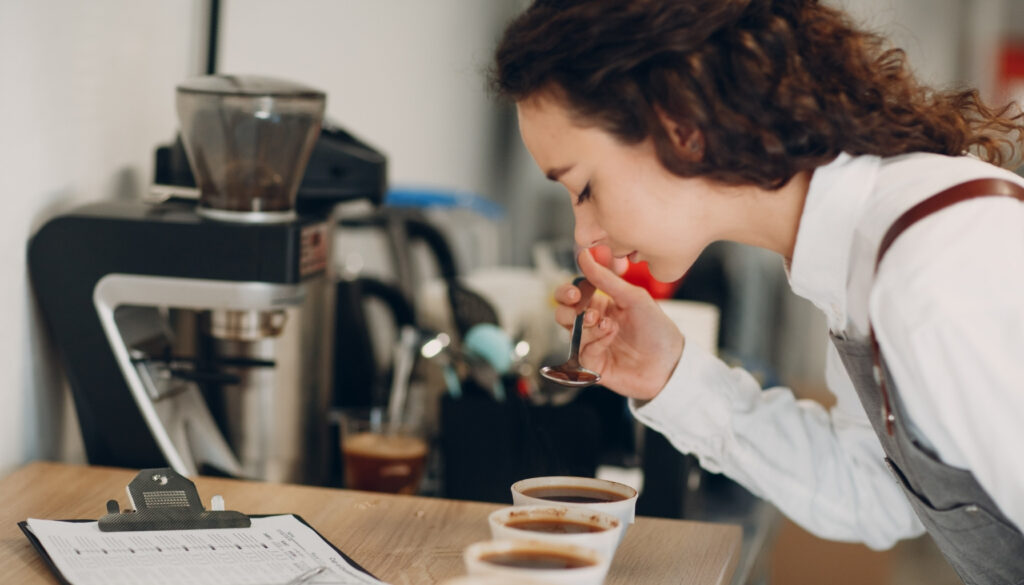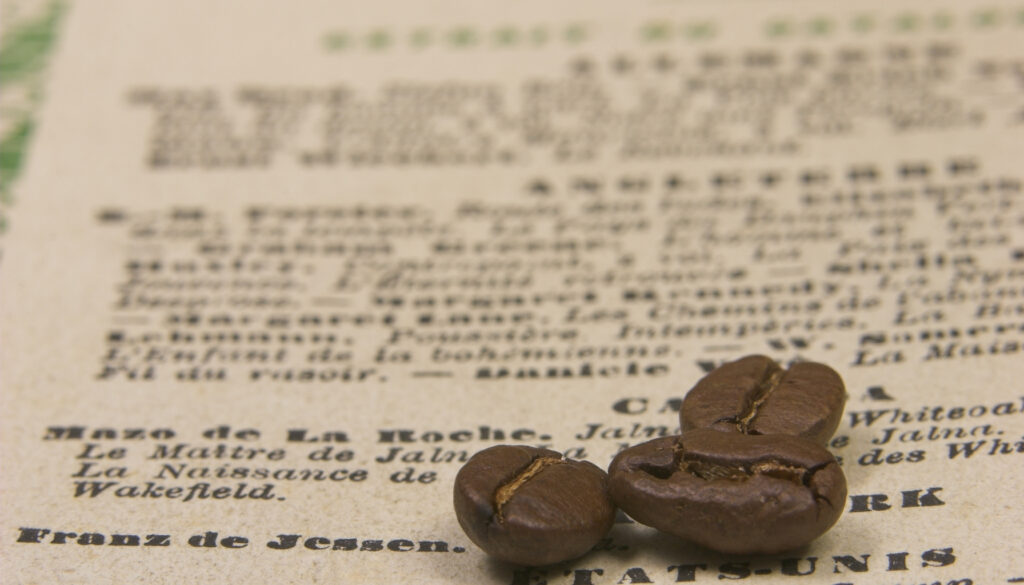Coffee, much like fine wine, offers an incredible range of flavors, aromas, and experiences. The art of coffee appreciation transcends merely brewing and enjoying a cup. To fully embrace the world of coffee, one must delve into the intricate grading system that determines the quality of beans. This article will explore specialty coffee grading, shedding light on how it influences taste, value, and the overall experience for coffee lovers.
Defining Specialty Coffee
Specialty coffee refers to beans that meet specific quality standards, typically rated above 80 points on a 100-point scale by certified coffee tasters. These beans often originate from specific regions known for their unique growing conditions, such as altitude, climate, and soil composition. Because of this, the flavor profiles can be remarkably distinct. Furthermore, specialty coffee encompasses various attributes, from the bean’s origin to the meticulous process of cultivation and harvesting.
Understanding specialty coffee goes beyond quality. It emphasizes the dedication of farmers and producers who focus on sustainable practices and meticulous attention to detail. Coffee enthusiasts appreciate every nuance in flavor, aroma, and body. Therefore, each cup of specialty coffee becomes a sensory exploration, allowing connoisseurs to connect deeply with the nuances of the beans.
The Specialty Coffee Association (SCA)
The Specialty Coffee Association (SCA) plays a crucial role in defining and promoting specialty coffee. This organization sets the standards for grading coffee and establishes what qualifies as specialty. Through rigorous training and certification programs, the SCA helps coffee professionals, from farmers to baristas, understand the complexities of specialty coffee grading.
The SCA has developed a comprehensive cupping protocol that facilitates the assessment of coffee quality. This standardized process allows experts to evaluate various attributes such as acidity, sweetness, body, and aftertaste. By adhering to these guidelines, the SCA ensures consistency and reliability within the specialty coffee community, supporting the growth of high-quality coffee worldwide.
Understanding the Grading Scale
The grading scale for specialty coffee ranges from 60 to 100 points, with anything above 80 classified as specialty. A score of 60 marks the threshold for commercially acceptable coffee. Thus, any coffee rated below this score often lacks distinctive qualities, contributing little to the overall coffee experience.
Scores in the 80s are where coffee begins to shine. These brews exhibit unique flavors and complexities that make them stand out. Higher scores range from 90 to 100, typically representing exceptional coffees. Scoring above 95 indicates a coffee that is extraordinary, highlighting the dedication of the producers and the unique characteristics of the beans.
Factors Influencing Coffee Grades
Many factors contribute to the grading of specialty coffee. These include the origin of the beans, the processing methods, and the cultivation practices. Each of these elements plays a vital role in determining the final flavor profile and overall quality of the coffee.
For instance, beans sourced from high altitudes often exhibit vibrant acidity and complex flavors. Meanwhile, processing methods, such as washed or natural, bring out different characteristics in the beans. Understanding how these elements interact allows coffee enthusiasts to appreciate the multifaceted world of specialty coffee more fully.
The Role of Terroir in Coffee Quality
Terroir, a term borrowed from the wine industry, refers to how environmental factors influence the taste of crops. In coffee, terroir encompasses aspects like soil type, altitude, climate, and even the surrounding ecosystem. These elements work together to create a unique flavor profile for each coffee-producing region.
Regions such as Ethiopia, Colombia, and Guatemala each produce beans with distinct flavors attributed to their unique terroir. For example, Ethiopian coffees often showcase fruity and floral notes, while Colombian beans tend to feature a well-balanced profile with caramel sweetness. Understanding terroir enhances the appreciation of specialty coffee and highlights the diversity within the industry.
Harvesting Techniques and Their Impact on Quality
Harvesting techniques significantly influence the quality of coffee beans. Producers often use two main methods: selective picking and strip harvesting. Selective picking, where only ripe cherries are harvested, preserves the quality of the beans. This method requires skilled labor and results in superior coffee.
In contrast, strip harvesting involves collecting all cherries from the tree, regardless of ripeness. This approach often leads to a mix of ripe and unripe beans, adversely affecting the overall quality. Consequently, the best specialty coffees typically come from farms that prioritize selective picking, as this method ensures that only the finest cherries contribute to the final product.
The Importance of Processing Methods
Processing methods play an integral role in shaping the flavor of coffee. The two most common processing methods are washed and natural. The washed method involves removing the cherry’s outer pulp before fermenting the beans, resulting in a cleaner, brighter flavor profile. On the other hand, the natural method allows the cherries to dry in the sun, imparting fruity and rich flavors to the beans.
Other processing methods, such as honey and anaerobic fermentation, have gained popularity among specialty coffee producers. These techniques can enhance specific flavor notes and contribute to the overall complexity of the coffee. Therefore, understanding these methods allows consumers to appreciate the artistry involved in specialty coffee production.
Cupping: The Art of Coffee Tasting
Cupping is an essential practice in specialty coffee grading. It allows cuppers to evaluate the coffee’s aroma, flavor, acidity, body, and aftertaste. During a cupping session, coffee professionals brew coffee using a standardized method to ensure consistency. After brewing, they assess the coffee’s qualities through guided tasting.
This process not only aids in grading the coffee but also allows producers to understand their beans’ unique characteristics better. By participating in cupping sessions, coffee enthusiasts gain insight into the complexities of flavor, enhancing their overall appreciation for specialty coffee.
The Role of Baristas in Specialty Coffee
Baristas play a crucial role in the specialty coffee experience. These skilled professionals are trained to understand the nuances of various brewing methods and how to extract the best flavors from the beans. Their expertise is vital, as they can significantly influence the final cup’s quality through proper brewing techniques.
Additionally, well-trained baristas share their knowledge with customers, offering insights into the origins of the beans, tasting notes, and brewing recommendations. This engagement fosters a deeper connection between the coffee and the consumer, elevating the entire coffee experience.
How to Choose Specialty Coffee
Selecting the right specialty coffee can feel overwhelming, given the numerous options available. To ensure an exceptional experience, consider a few key factors. First, pay attention to the coffee’s origin. Each region imparts unique flavors and characteristics, so experimenting with different origins can lead to delightful discoveries.
Second, look for information about the harvesting and processing methods. Understanding how the coffee was produced can provide insight into its flavor profile. Lastly, consider freshness. Specialty coffee is best enjoyed shortly after roasting, so seek out local roasters or online suppliers that prioritize freshness in their offerings.
The Importance of Freshness
Freshness plays a pivotal role in the quality of specialty coffee. As coffee beans age, they lose their flavor and aroma, diminishing the overall experience. To maintain peak freshness, consumers should purchase whole beans and grind them just before brewing. This practice ensures that the essential oils and flavors remain intact, delivering a more vibrant cup.
Additionally, proper storage is crucial for maintaining freshness. Store coffee beans in an airtight container in a cool, dark place to prevent oxidation and staleness. By prioritizing freshness, coffee lovers can elevate their tasting experience and savor the unique qualities of specialty coffee.
Brewing Methods for Specialty Coffee
The brewing method you choose can significantly impact the final flavor of your coffee. Various techniques, such as pour-over, Aeropress, French press, and espresso, offer unique ways to extract flavors from the beans. Each method can highlight different aspects of the coffee, resulting in a diverse tasting experience.
For instance, pour-over brewing allows for precise control over water temperature and flow rate, enhancing clarity and brightness. Conversely, a French press emphasizes body and richness, resulting in a fuller mouthfeel. Exploring different brewing methods can help coffee enthusiasts discover their preferences and enjoy specialty coffee in new ways.
Understanding Flavor Profiles
Flavor profiles in specialty coffee encompass a wide range of tastes and aromas. Common notes include fruity, nutty, chocolatey, and floral, each contributing to the coffee’s overall character. Furthermore, the balance of acidity, sweetness, and bitterness plays a crucial role in shaping the coffee’s flavor.
As you explore specialty coffees, pay attention to the tasting notes described by producers. These descriptors offer insight into what you can expect from each brew. By developing your palate and identifying your preferences, you can refine your coffee selection process and savor the subtleties of specialty coffee.
Exploring Coffee Regions
Specific coffee-growing regions are renowned for producing distinctive and exceptional coffees. Regions like Ethiopia, Colombia, Kenya, and Sumatra offer unique flavor profiles tied to their terroir. For instance, Ethiopian coffees often exhibit bright acidity and floral notes, while Colombian beans are known for their smooth and well-rounded flavors.
By exploring coffees from different regions, coffee enthusiasts can embark on a global tasting journey. Each cup serves as a testament to the artistry of farmers and producers, showcasing the diverse qualities that make specialty coffee a true indulgence.
The Art of Blending
In addition to single-origin coffees, blends represent another exciting aspect of specialty coffee. Blending involves combining beans from different regions or processing methods to create a complex and balanced flavor profile. Master blenders seek to harmonize various attributes, resulting in a cup that delivers a unique and memorable experience.
When considering a blend, look for the producer’s description of the flavor notes and the beans used. Understanding the components of the blend allows consumers to appreciate the craftsmanship behind the final product, enhancing their overall enjoyment.
Pairing Specialty Coffee with Food
Pairing specialty coffee with food can elevate both the coffee and the culinary experience. Just as with wine, certain flavors in coffee complement specific dishes. For instance, a bright Ethiopian coffee may pair beautifully with fruity desserts, while a rich, chocolatey blend can enhance the flavors of dark chocolate treats.
When selecting pairings, consider the flavor profiles of both the coffee and the food. Experimenting with different combinations can lead to delightful discoveries and enhance the enjoyment of your favorite brews.
Experiencing Luxury Cafés
For the ultimate indulgence, visiting luxury cafés can provide a unique opportunity to savor specialty coffee in a refined setting. These establishments often prioritize quality, sourcing beans from top producers and employing skilled baristas who excel in their craft.
In addition to high-quality coffee, many luxury cafés offer an immersive experience. From beautifully designed spaces to knowledgeable staff, each element contributes to an atmosphere of sophistication. Enjoying a cup of specialty coffee in such an environment enhances the overall experience and allows coffee lovers to indulge in their passion.
The Economics of Specialty Coffee
The specialty coffee market continually evolves, influenced by consumer preferences, economic factors, and global events. As demand for sustainably sourced, high-quality coffee increases, more producers are transitioning to specialty coffee cultivation. However, challenges persist.
Producers often face fluctuating prices, climate change impacts, and varying consumer demands. As a result, the economics of specialty coffee can be intricate, necessitating a solid understanding of market trends and sustainable practices. Coffee lovers who appreciate specialty brews can contribute to the well-being of farmers and the industry as a whole by prioritizing ethical sourcing.
Sustainable Practices in Coffee Production
Sustainable coffee practices have gained traction in recent years as more consumers become environmentally conscious. Producers implement a range of methods to minimize their environmental footprint and ensure the future of coffee cultivation. Techniques such as shade-growing, organic farming, and water conservation help preserve ecosystems while producing high-quality coffee.
Additionally, many specialty coffee brands emphasize transparency in their sourcing practices. They often establish direct trade relationships with farmers, ensuring fair compensation and fostering community development. This commitment to sustainability not only benefits the environment but also enhances the quality of the final product.
Conclusion
Understanding specialty coffee grading is essential for coffee connoisseurs and luxury enthusiasts alike. By exploring the factors that influence quality and taste, engaging in cupping sessions, and experiencing the artistry behind each brew, you can elevate your appreciation for specialty coffee.
Embark on your own journey into the world of specialty coffee, and savor the remarkable flavors, aromas, and experiences it has to offer. As you refine your palate and explore the diverse range of coffees, you will discover that each cup tells a unique story—one that embodies the dedication of the farmers, the craftsmanship of the producers, and the passion of coffee lovers everywhere.
Final Thoughts on Specialty Coffee Grading
In conclusion, specialty coffee grading encompasses a comprehensive understanding of quality, flavor, and the journey from bean to cup. As you delve deeper into this world, remember to appreciate the intricate processes that shape each brew. Take pride in your choices, and share your love for specialty coffee with others.
Whether you’re brewing at home, tasting at a local café, or exploring coffee regions around the world, each experience contributes to the rich tapestry of specialty coffee culture. Celebrate this journey, and may every sip bring you closer to understanding and enjoying the remarkable world of specialty coffee grading.


